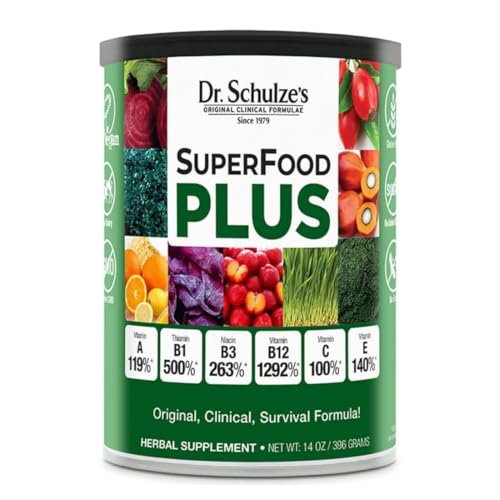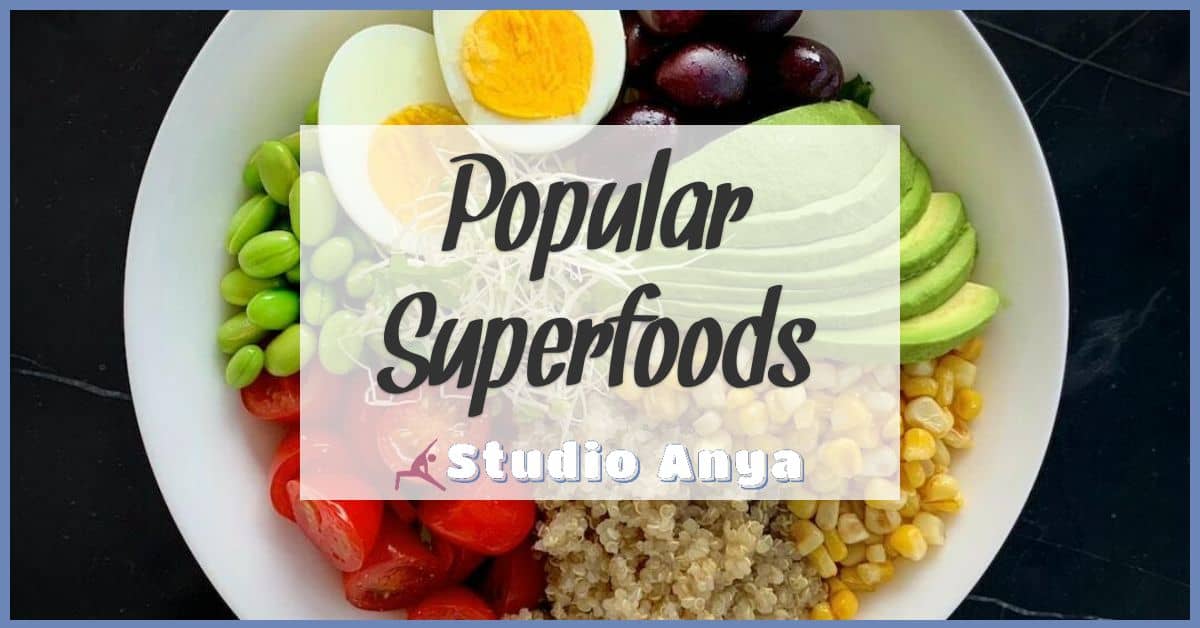Inflammation might sound like a complicated health term, but it’s something we all experience. Whether it’s from stress, an injury, or even the foods we eat, our bodies use inflammation as a defense mechanism. The problem is, when it sticks around too long, it can lead to chronic issues like joint pain, fatigue, or even more serious conditions.
I’ve learned that what we eat can play a huge role in either calming or fueling inflammation. The good news? You don’t need a fancy diet or extreme measures to make a difference. Small, mindful changes to your meals can have a big impact on how your body feels and functions. Let’s explore how simple tweaks to your diet can help you feel better from the inside out.
Understanding Inflammation And Its Impact On Health
Inflammation is the body’s natural response to injury, infection, or harmful stimuli. It acts as a protective mechanism, promoting healing in the short term. Yet, when inflammation persists, it transitions from being helpful to harmful, leading to chronic conditions like arthritis, heart disease, or even digestive disorders.
Chronic inflammation often results from lifestyle factors, including diet, stress, and lack of physical activity. Foods high in refined sugars, unhealthy fats, and processed ingredients can intensify inflammatory responses in the body. Combining poor nutrition with unmanaged stress creates a cycle that strains both physical and mental health.
Inflammation also impacts energy flow and mental clarity, which are critical for a balanced yoga and meditation practice. I often notice that students struggling with focus or fatigue align this with dietary choices and stress levels. Proper nourishment becomes key in breaking this cycle, aiding both physical recovery and emotional stability.
Foods That Help Reduce Inflammation
Integrating anti-inflammatory foods can enhance your energy, support your yoga practice, and promote mental clarity for meditation. I often recommend these nutrient-rich choices to my students for sustained vitality and balance.
Fruits and Vegetables
Colorful fruits and vegetables are essential for reducing inflammation. Berries like blueberries, strawberries, and raspberries contain antioxidants that combat oxidative stress. Leafy greens such as spinach, kale, and arugula are high in vitamins A, C, and K, all known for their anti-inflammatory benefits. Cruciferous vegetables like broccoli and cauliflower provide sulforaphane, a compound supporting detoxification and reducing inflammation markers.
Healthy Fats
Healthy fats nourish both the body and mind, aiding focus during meditation and stamina in yoga. Avocados, nuts like almonds and walnuts, and seeds such as flaxseeds and chia seeds provide omega-3 fatty acids that help control inflammation. Extra virgin olive oil is another heart-healthy addition I use daily; its antioxidants, like oleocanthal, act as natural anti-inflammatory agents.
Whole Grains
Whole grains fuel sustained energy essential for physical and mental practices. Brown rice, quinoa, oats, and whole wheat provide fiber, B vitamins, and antioxidants that reduce inflammation caused by processed carbohydrates. These grains maintain stable blood sugar levels, which is vital for feeling grounded during breathwork and meditation.
Spices and Herbs
Spices and herbs elevate both flavor and wellness. Turmeric, with its active compound curcumin, is a powerful anti-inflammatory I often suggest incorporating into teas or dishes; pairing it with black pepper increases its absorption. Ginger, rich in compounds like gingerol, reduces joint inflammation, supporting flexibility in yoga. Fresh herbs like basil, cilantro, and parsley add micronutrients while helping combat oxidative stress.
Foods To Avoid To Reduce Inflammation
Understanding which foods to limit is essential for reducing inflammation and supporting a balanced lifestyle. Many items in today’s diets can hinder the body’s natural healing processes, making it harder to feel energized and focused during yoga and meditation practices.
Processed Foods
Processed foods, like packaged snacks, frozen meals, and fast food, often contain preservatives, chemicals, and unhealthy fats that disrupt the body’s balance. These foods can lead to inflammation due to their low nutritional value and high levels of additives. Opting for fresh, whole foods instead helps nourish your body and keeps energy consistent during mindful practices.
Refined Sugars
Refined sugars, found in sodas, candies, and baked goods, can lead to blood sugar spikes, causing inflammation and energy crashes. These fluctuations make it challenging to maintain clarity during meditation or physical stamina in yoga. Replacing refined sugars with natural options like honey or dates supports the body without triggering these negative effects.
Trans Fats
Trans fats, present in margarine, fried foods, and some baked goods, are associated with higher inflammation levels and an increased risk of chronic disease. They interfere with heart health and can make you feel sluggish. Choosing healthier fats, like olive oil or avocado, supports your body and enhances focus for meditation and yoga practices.
Alcohol
Alcohol, especially in excessive amounts, promotes inflammation and disrupts sleep, impacting recovery and mental clarity. This not only affects our physical well-being but also our ability to connect with mindfulness practices. Limiting or avoiding alcohol and hydrating with water or herbal teas helps maintain the energy and balance necessary for a healthy lifestyle.
Creating An Anti-Inflammatory Meal Plan
Designing meals that support reduced inflammation involves prioritizing nutrient-dense, whole foods. I encourage my students to choose ingredients that provide sustained energy for yoga and meditation practices while promoting overall wellness.
Breakfast Options
Starting your day with a nourishing breakfast supports energy flow and mental clarity. I often recommend:
- Smoothie Bowls: Blend spinach, frozen berries, a banana, and unsweetened almond milk. Top with chia seeds, sliced almonds, and a drizzle of honey. Berries and spinach are anti-inflammatory powerhouses, rich in antioxidants and vitamins.
- Avocado Toast with Veggies: Whole-grain toast topped with mashed avocado, arugula, sliced radish, and a sprinkle of turmeric. Whole grains stabilize blood sugar, and turmeric adds a natural anti-inflammatory boost.
- Overnight Oats: Combine rolled oats, unsweetened almond milk, flaxseeds, and a dash of cinnamon in a jar. Let sit overnight, then add fresh fruit and walnuts in the morning. Fiber from oats and omega-3s from flaxseeds enhance digestion and reduce inflammation.
Lunch And Dinner Ideas
Midday and evening meals can be light yet fulfilling to complement your yoga and meditation routine. Here are my go-to suggestions:
- Quinoa Buddha Bowl: Quinoa as the base with steamed broccoli, roasted sweet potatoes, chickpeas, and fresh greens. Drizzle with tahini and lemon dressing. Quinoa delivers protein, while the vegetables and tahini support healing processes.
- Grilled Salmon with Veggies: Serve salmon with a side of sautéed kale and roasted carrots. Salmon is high in omega-3 fatty acids, promoting joint health and reducing inflammation.
- Vegetable Stir-Fry: Use a mix of colorful bell peppers, snap peas, mushrooms, and zucchini cooked in coconut oil with turmeric, ginger, and garlic. Serve over brown rice or cauliflower rice. This dish combines anti-inflammatory spices with high-fiber vegetables.
Snack Suggestions
Simple snacks keep energy levels steady without interrupting your practice. These are some of my favorites:
- Hummus with Veggies: Pair homemade or low-sodium hummus with crunchy raw vegetables like carrots, cucumber, and celery. Hummus provides plant-based protein, and veggies deliver antioxidants.
- Mixed Nuts and Seeds: A small handful of walnuts, almonds, and pumpkin seeds helps maintain healthy fats and keeps inflammation in check.
- Turmeric Latte: Mix a teaspoon of turmeric with warm unsweetened almond milk, a pinch of black pepper, and a touch of honey. This drink is soothing and rich in anti-inflammatory benefits.
Planning your meals around vibrant, whole foods aligns with the principles of mindfulness and self-care practiced in yoga and meditation.
Practical Tips For Maintaining An Anti-Inflammatory Diet
Adopting an anti-inflammatory diet can improve energy, focus, and overall well-being, which are essential for yoga and meditation practices. These practical tips make it easier to integrate nourishing choices into daily life.
1. Prioritize Whole, Fresh Foods
I always recommend building meals around unprocessed, nutrient-dense foods like fresh vegetables, fruits, whole grains, and lean proteins. For example, choose spinach, sweet potatoes, or lentils for their vitamins and minerals. These foods fuel the body and promote mental clarity for meditation.
2. Add Anti-Inflammatory Ingredients
Incorporating foods like turmeric, ginger, and leafy greens into meals supports inflammation reduction. I like adding turmeric to my morning latte or ginger to my stir-fry. These small changes align nourishment with inner balance.
3. Choose Healthy Fats
Include sources of healthy fats such as avocado, olive oil, nuts, or seeds daily. I often drizzle olive oil over salads or snack on almonds to support my body with omega-3s, which are crucial for reducing inflammation.
4. Limit Trigger Foods
Refined sugars, trans fats, and alcohol impact the inflammatory pathways. Replace sugary snacks with naturally sweet options like berries or dried fruit, and opt for herbal teas instead of alcohol to feel energized and focused for breathwork sessions.
5. Stay Hydrated
Drinking water consistently is vital for flushing out toxins and reducing overall inflammation. I encourage keeping a water bottle nearby throughout the day with lemon slices or cucumber for extra hydration support.
6. Plan Balanced Meals
Balancing macronutrients helps stabilize blood sugar and energy. I pair proteins, like grilled fish, with fiber-rich sides, such as quinoa or roasted vegetables. Structured meals maintain energy flow for physical recovery and meditation.
7. Experiment With Herbal Teas
Certain teas, like chamomile and green tea, offer natural anti-inflammatory properties. I enjoy sipping them during quiet, mindful moments or after yoga sessions, enhancing relaxation while nourishing the body.
8. Practice Mindful Eating
Eating slowly and focusing on flavors helps tune into how the body feels. I suggest taking this time as an extension of meditation, connecting fully with the nourishment you’re providing yourself.
Conclusion
Making thoughtful changes to what we eat can have a profound impact on how we feel, both physically and mentally. By focusing on whole, nutrient-dense foods and steering clear of inflammatory triggers, we’re giving our bodies the tools they need to heal and thrive. It’s all about balance and consistency, not perfection.
When we nourish ourselves mindfully, we’re not just reducing inflammation—we’re creating a foundation for better energy, focus, and overall well-being. Every small step counts, and over time, these choices can lead to lasting, positive change.



















